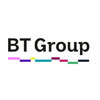Filter interviews by
Maksat Technologies RF Engineer Interview Questions and Answers for Freshers
Maksat Technologies RF Engineer Interview Experiences for Freshers
1 interview found
I applied via Referral and was interviewed in Dec 2021. There was 1 interview round.
(3 Questions)
- Q1. My self, qualifications
- Q2. Fresher questions Bca according question
- Q3. Field Training questions
Interview Preparation Tips
Top trending discussions






Interview questions from similar companies

Interview Questionnaire
12 Questions
- Q1. LTE Architecture
- Q2. Interface between LTE
- Ans.
Interface between LTE refers to the connection between the LTE network and other networks or devices.
LTE interfaces with other cellular networks such as 3G and 2G through inter-RAT handover
LTE also interfaces with non-cellular networks such as Wi-Fi and Ethernet through evolved packet core (EPC)
LTE devices interface with the LTE network through the air interface using radio frequency signals
LTE also interfaces with cor...
- Q3. What is X2 interface
- Ans.
X2 interface is a communication interface between two eNodeBs in LTE network.
X2 interface is used for inter-cell handover and load balancing.
It is a point-to-point interface that connects two eNodeBs.
X2 interface is used for exchanging control and user plane data between eNodeBs.
It is a critical interface for LTE network performance and reliability.
X2 interface supports various protocols such as S1AP, GTP, and RANAP.
- Q4. Channels of LTE
- Ans.
LTE has 20 MHz bandwidth divided into 100 resource blocks. Each resource block has 12 subcarriers and 7 symbols.
LTE has 20 MHz bandwidth
Divided into 100 resource blocks
Each resource block has 12 subcarriers and 7 symbols
- Q5. KPI of LTE
- Ans.
KPIs (Key Performance Indicators) of LTE include throughput, latency, coverage, and call setup success rate.
Throughput measures the amount of data that can be transmitted over the network in a given time period.
Latency measures the time it takes for data to travel from the source to the destination.
Coverage measures the area where the network signal is available.
Call setup success rate measures the percentage of succes...
- Q6. What is CSFB?
- Ans.
CSFB stands for Circuit Switched Fallback, a technology that allows LTE devices to fallback to 2G or 3G networks for voice calls.
CSFB is used when a LTE device is unable to make a voice call over the LTE network.
It allows the device to switch to a 2G or 3G network for voice calls.
CSFB is a temporary solution until VoLTE (Voice over LTE) becomes more widely available.
CSFB can cause call setup delays and impact the user ...
- Q7. Why OFDMA technique used in LTE?
- Ans.
OFDMA is used in LTE to improve spectral efficiency and support multiple users simultaneously.
OFDMA allows for multiple users to share the same frequency band by dividing it into smaller subcarriers.
It also enables dynamic allocation of subcarriers to users based on their bandwidth requirements.
This results in better spectral efficiency and higher data rates.
OFDMA is also resistant to interference and fading, making it...
- Q8. Differentiate FDD & TDD
- Ans.
FDD and TDD are two different duplexing techniques used in wireless communication.
FDD stands for Frequency Division Duplexing and TDD stands for Time Division Duplexing.
In FDD, separate frequency bands are used for uplink and downlink communication, while in TDD, the same frequency band is used for both uplink and downlink communication.
FDD is used in technologies like 2G, 3G, and 4G LTE, while TDD is used in technolog...
- Q9. What is massive MIMO?
- Ans.
Massive MIMO stands for Massive Multiple Input Multiple Output. It is a wireless communication technology that uses a large number of antennas at the base station to improve network performance.
Massive MIMO uses a large number of antennas at the base station to improve network performance.
It can significantly increase the capacity and coverage of wireless networks.
It works by using spatial multiplexing to transmit mult...
- Q10. LTE Channels
- Q11. LTE Call Flow
- Q12. Type of Handover & its process
- Ans.
Handover is the process of transferring an ongoing call or data session from one cell to another.
There are two types of handover: Hard Handover and Soft Handover.
Hard Handover involves breaking the connection with the current cell before establishing a connection with the new cell.
Soft Handover involves establishing a connection with the new cell before breaking the connection with the current cell.
The handover process...
Skills evaluated in this interview

Interview Questionnaire
2 Questions
- Q1. Wahi is the 4G parameters in kpi.
- Ans.
4G parameters in KPI are key performance indicators that measure the performance of a 4G network.
4G parameters in KPI include metrics such as signal strength, signal quality, throughput, latency, and handover success rate.
These parameters help assess the overall performance and quality of a 4G network.
For example, signal strength is measured in dBm and indicates the power level of the received signal.
Throughput measure...
- Q2. What is SINR.
- Ans.
SINR stands for Signal-to-Interference-plus-Noise Ratio, a measure of signal quality in wireless communication.
SINR is a ratio of the desired signal power to the interference and noise power.
It is used to evaluate the quality of a wireless signal in a given environment.
Higher SINR values indicate better signal quality and stronger signal-to-noise ratio.
SINR is commonly used in cellular networks to optimize network perf...

(2 Questions)
- Q1. Why nokia and why this job
- Ans.
Nokia is a global leader in telecommunications technology and I am passionate about RF engineering, making this job a perfect fit for me.
Nokia is a renowned company with a strong reputation in the telecommunications industry
I have a deep interest in RF engineering and Nokia offers opportunities to work on cutting-edge technologies in this field
The company's commitment to innovation and continuous learning aligns with m...
- Q2. Some basic fundamental questions from theory

I applied via Referral and was interviewed before Mar 2022. There were 2 interview rounds.

(5 Questions)
- Q1. About ur self are u fresher or do any work
- Ans. Iam working as RF survey engineer
- Q2. What will be salery there
- Q3. Did u work field work
- Q4. What will be ur expectation
- Ans.
My expectation is to work in a challenging and dynamic environment where I can utilize my skills and knowledge to contribute to the success of the company.
Opportunity to work on cutting-edge RF technologies
Collaborative and supportive team environment
Clear communication and feedback from management
Opportunities for professional growth and development
Competitive salary and benefits package
- Q5. Please send ur documents
Interview Preparation Tips
Focus on improve ur skills

I applied via Naukri.com and was interviewed in Oct 2022. There were 2 interview rounds.

(3 Questions)
- Q1. Work experience, my habit, skills, qualification & my future career planning
- Q2. Why did you decide to apply this role, tell me about your experience
- Q3. What about your carrier
- Ans.
I have a strong background in RF engineering, focusing on design, testing, and optimization of wireless communication systems.
Experience in designing RF circuits for various applications, such as cellular networks and satellite communications.
Proficient in using simulation tools like ADS and HFSS for circuit and antenna design.
Worked on optimizing RF performance in real-world environments, improving signal strength and...
Interview Preparation Tips
- Team Management
- Engineering

(1 Question)
- Q1. LTE call flow and kpi

I applied via Recruitment Consulltant and was interviewed in Jul 2022. There were 2 interview rounds.

(3 Questions)
- Q1. All things considered about me
- Q2. Take all information about my job responsibilities
- Q3. Take all information my carrier
Interview Preparation Tips

I applied via Referral and was interviewed in Aug 2022. There were 4 interview rounds.

Aptitude test of 1 hour, 3 sections, sectional cut off, aptitude test, resoning, English
(3 Questions)
- Q1. Technical questions regarding LTE and 5G Kpi Optimization
- Q2. HOW YOU MITIGATE UL RSSI IN TDD ,DUCTING EFFECT ,TOOLS ON WHICH I AM WORKING
- Ans. FRAME STRUCTURE CHANGE SSF7 TO SSF5 AND Aggressive TILTING OF AGRRESOR WILL HELP
- Q3. HOW YOU CAN IMPROVE CQI
- Ans.
CQI can be improved by optimizing modulation schemes, increasing bandwidth, and reducing interference.
Optimize modulation schemes to increase data throughput
Increase bandwidth to allow for more data transmission
Reduce interference by using advanced signal processing techniques
Implement MIMO technology to improve signal quality
Use adaptive modulation and coding to adjust to changing channel conditions
(1 Question)
- Q1. What is my Salary expectations
- Ans.
My salary expectations for the RF Engineer position are competitive and commensurate with my experience and qualifications.
Research the average salary range for RF Engineers in your location and industry.
Consider your level of experience, education, and any specialized skills or certifications.
Factor in the company's size, reputation, and benefits package.
Be prepared to negotiate and discuss your salary expectations du...
Interview Preparation Tips

(2 Questions)
- Q1. What is NR Technology?
- Ans.
NR Technology stands for New Radio Technology, which is the global standard for a unified, more capable 5G wireless air interface.
NR Technology is the foundation of 5G wireless communication systems.
It provides higher data rates, lower latency, and increased reliability compared to previous generations.
NR Technology operates in both sub-6 GHz and mmWave frequency bands.
It enables new use cases such as IoT, smart cities...
- Q2. What is difference between coupler and tapper?
- Ans.
A coupler is a device used to split or combine RF signals, while a tapper is used to attenuate a portion of the signal.
Coupler splits or combines RF signals, while tapper attenuates a portion of the signal
Coupler has multiple ports for signal input/output, tapper typically has one input and two outputs
Coupler has a fixed coupling ratio, tapper allows for adjustable attenuation levels
Maksat Technologies Interview FAQs
Some of the top questions asked at the Maksat Technologies RF Engineer interview for freshers -
Tell us how to improve this page.
Maksat Technologies Interviews By Designations
- Maksat Technologies RF Engineer Interview Questions
- Maksat Technologies Technical Support Engineer Interview Questions
- Maksat Technologies Engineer Interview Questions
- Maksat Technologies Network Engineer L1 L2 Interview Questions
- Maksat Technologies Supervisor Interview Questions
- Maksat Technologies Service Engineer Interview Questions
- Maksat Technologies Training Manager Interview Questions
Interview Questions for Popular Designations
Interview Questions from Similar Companies
Maksat Technologies RF Engineer Reviews and Ratings
based on 42 reviews
Rating in categories
|
RF Engineer
190
salaries
| ₹2 L/yr - ₹4.4 L/yr |
|
Network Engineer
48
salaries
| ₹2.2 L/yr - ₹3.8 L/yr |
|
Team Lead
42
salaries
| ₹2.8 L/yr - ₹4.8 L/yr |
|
Team Coordinator
29
salaries
| ₹2.4 L/yr - ₹4.5 L/yr |
|
Field Engineer
16
salaries
| ₹2 L/yr - ₹3.8 L/yr |

Ericsson

Nokia

ACT Fibernet

BT Group
- Home >
- Interviews >
- Maksat Technologies Interview Questions >
- Maksat Technologies Interview Questions for Fresher














